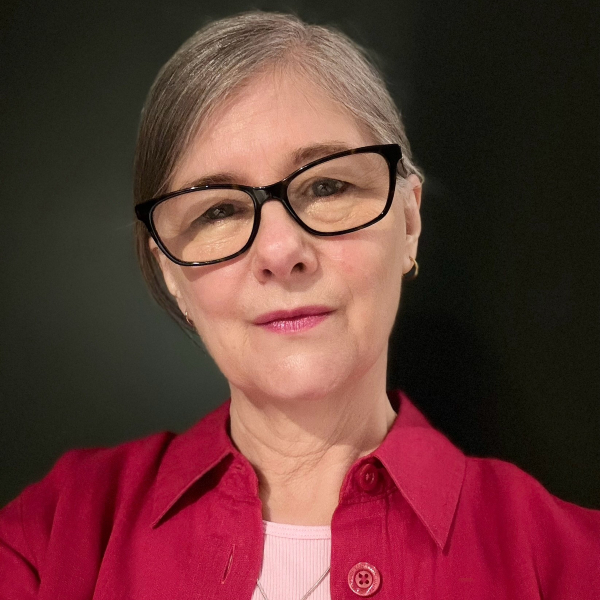
Do you like reading books about social work or by social workers in your spare time?
- No, I want to switch off from the job (36%, 316 Votes)
- Yes, that's what I'm into (34%, 299 Votes)
- It depends on the book (30%, 266 Votes)
Total Voters: 881
Our interview with Ruth Allen is part of a series of profiles of key figures who have shaped social work over the past five decades, to mark Community Care’s 50th anniversary. Previous interviewees include Eileen Munro, Herbert Laming, and June Thoburn.
Ruth Allen has spent the past eight years as chief executive of the British Association of Social Workers (BASW), providing leadership and representation to members from all parts of the profession.
But before that, her focus was squarely on mental health social work.
Having practised in mental health settings after qualifying in the 1990s, she went on to become director of social work in two NHS Trusts.
Then, in 2012, she became chair of the mental health faculty at The College of Social Work, the body set up to provide leadership for the profession, which closed in 2015 after the government withdrew funding and it was unable to sustain itself.
Most recently, she was elected president of the International Federation of Social Workers Europe, the regional division of the profession’s global body.
Speaking to Community Care, Allen reflected on the evolution of mental health practice within social work, the lack of shared knowledge across services and BASW’s impact under her leadership.

BASW chief executive Ruth Allen (credit: BASW)
How has mental health social work evolved over recent years?
I think there is an acceptance that if you’re working in social work, you need to have an understanding of mental health, whether you’re working with children, adults or older adults.
There’s been quite a resurgence over the past 20 years in the importance of qualifying and ongoing training in mental health and a recognition of what social work brings to mental health services in integrated settings and teams.
But there’s still quite a long way to go to develop the knowledge and basic skills needed to work well with mental distress disorders.
What would you describe as those basic skills?
The first thing is that all social workers should be confident addressing mental health topics, whether that’s with adults, parents or even children. Obviously, when talking with children, you probably need some additional training to do that, but you need to first have confidence to raise the issue.
I know people who trained around the same time as me who didn’t know how to have conversations about mental health and wellbeing.
Then it’s the skill to listen and recognise that, if there’s an authentic and trusting relationship with those you support, it’s easier to talk freely.
In the process of becoming a registered professional, sometimes you take on a mantle of professionalism. This often includes putting distance between you and the people you’re working with, in the name of objectivity and using evidence. I don’t think I was too badly affected by that but I know some people are – they become stiff in their professionalism.
But it’s the relationship you build that is the crucible of where change happens and people start addressing their issues. You have to have a lot of skill, resilience and knowledge, but also the ability to build relationships.
You were chair of The College of Social Work’s mental health faculty. What is its legacy?
Although the College didn’t last, I think the work that came out of its faculties – children’s, adults’ and mental health – had a subsequent life.
At the mental health faculty, we were able to do a range of things to bring a spotlight on mental health. I really was very pleased because it was needed.
We worked on a document called The role of the social worker in adult mental health services, which defined what it was to be a mental health practitioner and ended up being quite influential. I am now working with colleagues to review and revise this.
Share your story

Picture: daliu/fotolia
Would you like to write about a day in your life as a social worker? Do you have any stories, reflections or experiences from working in social work that you’d like to share or write about?
If so, email our community journalist, Anastasia Koutsounia, at anastasia.koutsounia@markallengroup.com
This was at a time when we were still trying to help the integrated NHS and local authority mental health services adapt to the Care Act 2014. There was still a sense of, ‘What is it that social workers do?’.
So we created the document to help with that. It was well-informed and well-evidenced.
We launched it in Parliament, and it was supported by Lyn Romeo [then chief social worker for adults] and the then care minister, Norman Lamb. It bridged the gap between political leadership, senior social work leadership and social workers on the ground.
It also ended up being the basis for other guidance, like Social work for better mental health, a government strategy to improve mental health social work and raise its profile within the sector.
How integrated is mental health social work across settings?
NHS organisations are now recruiting more social workers directly into the NHS because they recognise that they bring a holistic approach.
There’s a recognition that there is a spectrum of skills that social workers bring which is distinctive. This includes an understanding of social context and the structural and systemic problems people face.
But I would like to see more mental health expertise being shared across the sector.
Social work around adults with mental health disorders has grown in recognition, knowledge and skills. They’ve had some more investment. Yet mental health knowledge hasn’t been integrated very well into wider practice. For instance, there are big differences between how adults, young people, children and the elderly are approached when it concerns mental health. The models are so different.
In a way, the role of social work in children and adolescent mental health services has actually declined and could benefit from more skill development.
That is partly because of one of the other significant problems that we have now – the division between adults’ and children’s services, which is right at government department and local level in England.
Why is the division between adults’ and children’s services such an issue?
Westminster government introduced separate directors for adults’ and children’s services in the 2000s and divided child and family and adult social work at government department level.
My experience on the ground is that professionals and the different specialists will do whatever they can to try and create relationships and close the gap.
But social work services are so pressed now, you’ve got different legislation when working with adults and children.
With the best will in the world, very busy social workers can’t go around making all the connections. At points of transition, particularly between children and adults services, there are huge differences in practices and the resources available.
Celebrate those who’ve inspired you
For our 50th anniversary, we’re expanding our My Brilliant Colleague series to include anyone who has inspired you in your career – whether current or former colleagues, managers, students, lecturers, mentors or prominent past or present sector figures whom you have admired from afar.
Nominate your colleague or social work inspiration by either:
- Filling in our nominations form with a letter or a few paragraphs (100-250 words) explaining how and why the person has inspired you.
- Or sending a voice note of up to 90 seconds to +447887865218, including your and the nominee’s names and roles.
If you have any questions, email our community journalist, Anastasia Koutsounia, at anastasia.koutsounia@markallengroup.com
What was your vision for BASW when you joined?
My vision was for BASW to be a strong independent voice for social work and to consolidate and improve the services that we provided to members.
I also wanted to do some myth-busting about what BASW was and wasn’t. We’re not a trade union, we are a professional body. We are interested not only in supporting practitioners, but in developing social work and influencing change on things like inequality. We set our new mission after I joined.
I spent a few years sorting out internal and external issues and modernising our communications and press work, particularly regarding our professional development offer. So we constantly go back to our members and non-members and ask, ‘What do you want from us?’. That is still ongoing.
What are some obstacles you’ve faced as chief executive?
I think one of the obstacles is the issue of funding and investment in social work at the moment. I think we do a good job helping people stay in social work because we are a place that people can go to for coaching, as well as formal advice and solidarity and a sense of belonging.
But it is very tough out there. The pressure of workload and resources that people are under is an obstacle – to best practice and to people making choices in their own best interests.
We would like to see more co-operation across the board to find coherent solutions for social work and social care. But sometimes it feels like we’re all pulling in different directions.
The public and political support and press coverage of social work has also improved broadly over the years. But there needs to be more consistent noticing of what social workers do – a fair portrayal, telling the good stories as well as the bad ones.
That’s why we’ve created the BASW Social Work Journalism Awards.
What are your proudest achievements at BASW?
Our campaigns have been really important, especially the collaborative work on working conditions and social work experiences, with the Social Workers Union and Professor Jermaine Ravalier (now of Buckinghamshire New University).
While we didn’t change the Illegal Migration Act 2023 [the government legislation designed to deny asylum to anyone deemed to have entered the UK illegally], we’ve been a strong force in that area.
Our efforts on migration, the retention of the Human Rights Act and the “homes not hospitals” deinstitutionalization work [regarding people with learning disabilities and autistic people] in England has been powerful. There are many campaign activities to be proud of.
Our strength as a campaigning voice also relies on our internal strength. During Covid-19, we moved our entire operation online within a week and became a strong presence for social work. We gathered social workers’ perspectives and provided additional support services quickly.
It helped us reach so many people because we were a visible and human presence during a really terrible time for many people.
That’s probably helped with getting core participant status now in the Covid inquiry. We are the main social work voice in the inquiry as an organisation.
What would you like to see change in social work?
I would like to see social work more united, having a collective, strong voice and more influence on our politicians and decision makers, beyond the public.
It’s also important as a profession that we can communicate with different parts of the sector and learn from each other.
There needs to be a credible, long-term investment programme in social work and social services in England to restore the confidence of practitioners.
I think social workers are absolutely remarkable with what they’re continuing to achieve, but we are falling behind other nations. That needs to be turned around for the sake of everybody.
I’d just like to see social workers become more influential so that we can use our values and our knowledge in policy everywhere.





 Bournemouth, Christchurch and Poole
Bournemouth, Christchurch and Poole  Hampshire County Council
Hampshire County Council  Lincolnshire County Council
Lincolnshire County Council  Norfolk County Council
Norfolk County Council  Northamptonshire Children’s Trust
Northamptonshire Children’s Trust  South Gloucestershire Council
South Gloucestershire Council  Wiltshire Council
Wiltshire Council  Wokingham Borough Council
Wokingham Borough Council  Children and young people with SEND are ‘valued and prioritised’ in Wiltshire, find inspectors
Children and young people with SEND are ‘valued and prioritised’ in Wiltshire, find inspectors  How specialist refugee teams benefit young people and social workers
How specialist refugee teams benefit young people and social workers  Podcast: returning to social work after becoming a first-time parent
Podcast: returning to social work after becoming a first-time parent  Podcast: would you work for an inadequate-rated service?
Podcast: would you work for an inadequate-rated service?  Family help: one local authority’s experience of the model
Family help: one local authority’s experience of the model  Workforce Insights – showcasing a selection of the sector’s top recruiters
Workforce Insights – showcasing a selection of the sector’s top recruiters 

 Facebook
Facebook X
X LinkedIn
LinkedIn Instagram
Instagram
Interesting – no mention of BASW’s work on anti-racism. Is that all in the past now…?
Anti-racism just like all the “I stand with” conscience salving noise that periodically escapes from the BASW echo-chamber is just performative one leg hopping. No substance, no conviction, no real commitment but gets the required applause and affirmation from the people who really matter, namely mates. Unsurprising really given that apparently Reform UK is the second choice of voting intentions for 12% of social workers.
Not everyone that reads and comments on here is a social worker. I’ve seen care workers and general public comment
The art of saying a lot – but nothing of any real meaning or substance – personified.
Sorry to be negative, but I’m not convinced. It’s time for BASW to join us in the 21st century and that means major changes in its leadership and functions. No more being SWE’s mistreated lapdog and colluding with exploitative employers. It’s time to be bold and demand more resources and respect for social work from government.
Maybe one day BASW will no longer be an echo chamber that only communicates with its minuscule membership and will actually interface with the majority of social workers (who are not members)… Just an idea.
It would’ve been nice to hear a bit more about how this self claimed professional social work voice had, has and is engaged just as enthusiastically with the public as it seems so proud to proclaim it does with other professionals and less impactful with politicians. I suppose if professionalism is the organisations core users of social work services and the public just need to form an orderly que and wait their turn. As a past BASW member I barely recognise the supportive and proactive claims portrayed.
The headline here is misleading. The article is more about “here is my CV, this is what my career is and by the way I have a product to flog in BASW so I’ll tell you how I’ve improved it to get you to join” than a reflection on the state of mental health social work. There are many brilliant mental health social workers, AMHPs, team managers and even a few strategic leads who can inform us about realities from the practitioner and service level. Unlike Ms Allen they don’t have a miniscule and largely ineffectual association to promote, just informed views about the state of mental health services and their respective experiences within. On the academic front Shula Ramon would’ve given us a comprehensive history of how mental health social work and services have developed. I have a lot of respect for how CC informs and promotes social work but this was a missed fire.
More superficial claptrap… 🙄
As a former member of BASW I know that the influence and leadership it claims for itself is often not matched by the evidence. That said it’s a bit harsh criticising Ruth Allen for doing what others in similar positions do. Self promotion to establish ‘expertise’ and over inflated claims of strategic achievements for the organisation they represent is part of the job. Yes we learnt little about the development and current trajectory of mental health social work. Personally I would not be expecting anything concrete to come from someone who is not part of mental health services and who by definition of their job title has impressions not often matched by practitioner and service realities. We lack the leadership we need and should have but Ruth Allen isn’t alone in not providing it. As a discussion forum BASW is very good but practically it’s not as influential or innovative as it likes to promote itself. Enjoy it for that if you are a member and ignore the hype if you are not. That said again I think the comments here are a tad harsh.